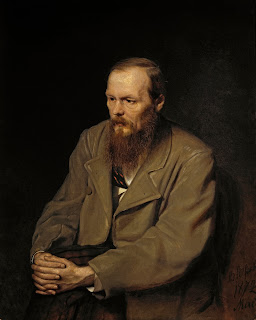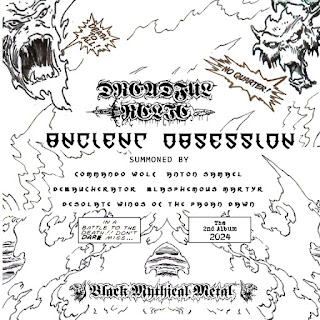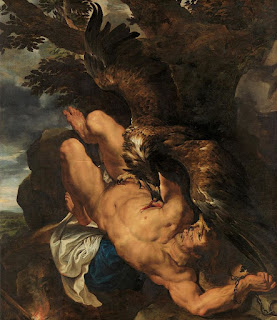ByCHAD CROWLEY
Introduction:
In ancient Rome, the majestic Aquila - the eagle - stood as an unrivaled symbol of the empire's martial prowess and steadfast authority. This emblematic bird exemplified Roman imperium, personifying its unyielding power and unconquerable spirit.
The eagle's symbolic genesis hails from the prehistorical epoch of the Proto-Indo-Europeans, where it served as both a religious and symbolic representation of power and dominion. As the concept of the eagle developed, evolving from the metaphysical to the earthly, it transcended its original celestial attributions, undergoing a metamorphosis to become an invincible representation of Roman military might.
Origins of the Aquila:
The roots of the Aquila can be traced back to the Proto-Indo-European peoples, specifically within the Ur-pantheon of their ancient religious system. In this early context, the eagle served as the divine emblem of the Sky-Father, Diaus Pita. Over time, this deity found parallels in the Greek and Roman pantheons, evolving into Zeus in Greek religion and Jupiter in Roman tradition.
The Aquila, then, was not merely a symbol but an extension of Jupiter's dominion. It embodied divine protection and radiated an aura of martial prowess. This divine authority took tangible form within the Roman legions: the Aquila graced the standards of every legion, manifesting Jupiter's power in a physical form. This powerful emblem served to imbue every Roman legionary with an unshakeable conviction in their martial supremacy. It reinforced the idea of the legion's invincibility on the battlefield, a belief integral to the sweeping success of Roman military campaigns.
The Symbol of Martial Unity:
The Aquila, deeply ingrained in the hearts of the Roman legions, embodied their collective identity and unyielding martial spirit. More than a mere emblem, it served as a beacon of unity, a rallying point that permeated the ranks of the Roman military machine. Its commanding presence encapsulated the essence of Roman martial prowess, instilling a shared sense of purpose among the legionaries.
With wings outstretched, the Aquila stood as a timeless symbol of hope and valor amidst the brutal realities of ancient warfare. Its presence ignited an innate resolve within the Roman legions, inspiring them to conquer all obstacles with undeterred determination and to overcome any adversary that dared to challenge the might of the Roman Empire.
Amidst the turmoil and dust of battle, the Aquila, proudly hoisted on the legion's standard, served as a unifying battle cry. From the tumultuous Battle of Cannae in 216 BC, where the Roman army suffered one of its most devastating defeats at the hands of Hannibal Barca, to the decisive victory at Actium in 31 BC, which marked the end of the Roman Republic and the rise of the Roman Empire under Octavian (later known as Augustus), the Aquila's presence was a constant. It symbolized Rome's undying martial spirit - a spirit that, despite defeats and hardships, always strived for and often achieved victory. The Aquila was more than a military standard; it was the soul of the legion itself, a testament to its resilience, strength, and indomitable valor. In the presence of the Aquila, every Roman soldier fought not merely for survival, but for the honor and glory of his legion, his empire, and the imperium it represented.
Expanding Significance:
As the Roman Empire relentlessly expanded its territory from the late Republic era (2nd-1st centuries BC) through the Principate (1st-3rd centuries AD) and into the Dominate period (4th-5th centuries AD), the significance of the Aquila grew proportionally with the grandeur of the empire. The eagle's role evolved beyond a mere military emblem to become the living representation of the Divine Emperor himself, signifying his absolute command over the legions and his imperium - the supreme authority of the Roman state. Standing as an unparalleled symbol of Rome's might and magnificence, the Aquila echoed across the vast expanse of the empire, from the imposing grandeur of the Colosseum in the heart of Rome to the farthest, most remote frontiers of imperial dominion.
The Dualistic Emblem:
The double-headed eagle, with one head facing Rome—the longstanding political epicenter of the European West—and the other directed towards Constantinople—established as the Empire's capital in 330 AD—served as a powerful symbol of the unification of the empire's distinct realms. This symbolic duality epitomized the cohesive strength that bound together the vast Roman Empire, despite vast geographical and ethnocultural differences.
The Sacred Obligation:
To a Roman soldier, the Aquila bore a sacred significance that transcended the earthly realm, firmly rooted in the spiritual. The loss of a military standard, especially the esteemed Aquila, was an event of such calamitous proportion that it shook the very foundations of a legion's honor. Therefore, recovering a lost Aquila transcended mere restitution; it was a quest for redemption, a restoration of the legion's deeply wounded pride and a reassertion of their unwavering devotion to Rome.
One historical instance which underlines this fact is the calamity that befell the Roman forces in 9 AD in the Teutoburg Forest. Here, three Roman legions - the XVII, XVIII, and XIX - led by Publius Quinctilius Varus, were utterly annihilated by Germanic tribes under the leadership of Arminius. The loss of the three Aquilae was a profound blow to Roman dignity. As such, subsequent Emperors, notably Germanicus under the reign of Augustus' successor Tiberius, launched a series of relentless military campaigns, not merely to exact vengeance on the rebellious tribes but also to restore the lost honor by retrieving the fallen Aquilae. These efforts exemplify the incomparable value and symbolism of the Aquila within the Roman military ethos.
Enduring Legacy:
The Aquila, imbued with martial grandeur, defies the ravages of time, standing as an embodiment of an era steeped in Roman audacity and unwavering spirit. Its spiritual beginnings traced back to the Proto-Indo-European Ur-pantheon, and its subsequent elevation to a symbol atop Roman legionary standards, the Aquila encapsulates the very quintessence of Roman martial might and the enduring legacy of an empire echoing through history. As an emblem of Rome's indomitable spirit, the Aquila's symbolic flight continues, casting an enduring shadow across millennia, reflecting Rome's martial prowess and its timeless grandeur.
In the context of Western civilization and the peoples of Europe, the legacy of the Aquila holds a significant place, intricately woven into the tapestry of our collective identity. This enduring symbol of strength, courage, and authority has left an indelible mark on our ethnocultural, historical, and military heritage, serving as a powerful connection to our ancestral past.



















































